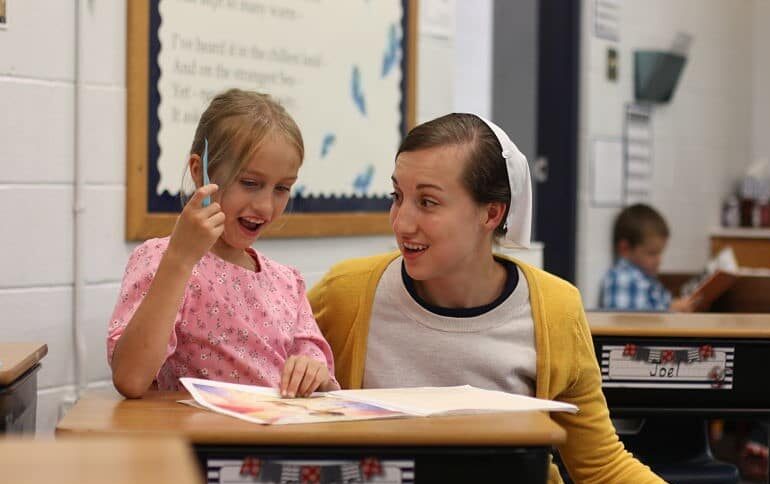The Art of Noticing Your Students
★★★★

I was a very green first-year teacher when I stumbled upon a helpful assumption about human nature. It seemed to me that neither the students nor the teacher could do our best work when we felt lost in the shuffle.
I had three grades with sixteen students total, and I had to hustle daily to reach around to the various academic needs. In fact, I was snowed under. There were a few students who struggled just to make passing grades and I began to see a pattern where a difficult math lesson segued into a troublesome English class as well. Lunch break and recess barely pulled us back up for another go in the afternoon. I needed to separate this crowd into individuals, or we were all going to tank.
I noticed that a child who feels like a failure in one area of school starts to project her failures onto other areas of life. What we need around here, I thought, is some ego boosting to interrupt this cycle. I started praying for creative ways to compliment my students. Of course, I didn’t want to encourage pompous behavior, but that didn’t seem to be an issue with discouraged middle schoolers.
When I was in school, we always called out how many were wrong after checking and the teacher gave us our grade publicly. It had never been an issue for me as an A student, but now as a teacher myself, I saw how demoralizing this could be. I started grading privately after we checked anything in class, so that their struggles were not a daily humiliation, nor could the aces puff up with pride. I wrote short post-it notes saying, “I saw how hard you were trying on this lesson… thanks for your hard work!” All the students got these private notes occasionally, but the ones whose hands were hanging down got them a little oftener.
A wise older teacher gave me some advice: “When complimenting children, you need to remember that they are astute fake detectors. They know if you are just gushing and telling a child that they have nice blue eyes is pointless, because they had nothing to do with that. It is better to notice character traits. If you notice that the boys have been letting the girls go out the door first at recess when every one of them wants to roar outside—that is a victory worthy of comment!”
Bearing this in mind, the second approach in my confidence boosting campaign was to start verbalizing compliments to the class. I said things like, “I have noticed someone who always waits until last for the water fountain after recess. Does anybody know who that is?” When everybody acknowledged the dyslexic student who was undeniably the most courteous in the classroom, he flushed with pleasure and thanked us. He was very good at being polite.
“I like how you sing with all your heart,” I said to the one who had been stuck in long division for weeks. She lit right up and applied herself diligently to the music lessons. Her clear soprano was the backbone of our singing program that year.
“Your mother would be so proud of how tidy you keep your desk,” I said to the one with atrocious spelling. He may have muddled through every exception to the English rules, but he was consistently neat, especially after he knew that I noticed.
I actually made a list of my students so I wouldn’t forget anybody, then checked off each one as I had a chance to comment something positive to them. This included everyone—those who were doing well and those who were at a disadvantage academically. I was very careful not to nurture any teacher’s pets.
Looking for ways to bless my students verbally made me realize how much I enjoyed them. They were indeed individuals budding with promise for the future. Of course, there was mischief and waywardness too, but in general the air in the classroom became one of courage and willingness to really work even when it was hard going. I knew I was not capable of meeting all the needs, but there was a daily shower of kind notes from the students coming to my desk in response to the atmosphere I was fostering in the classroom. My morale rose too; I thought that maybe I was a good teacher after all!
The helpful assumption that I stumbled onto was this: there is a basic human need to be seen as unique and liked for who you are. We just want to be noticed, to be a little special in the crowd, and when that happens, we can do more than we realized!
Leave a Reply